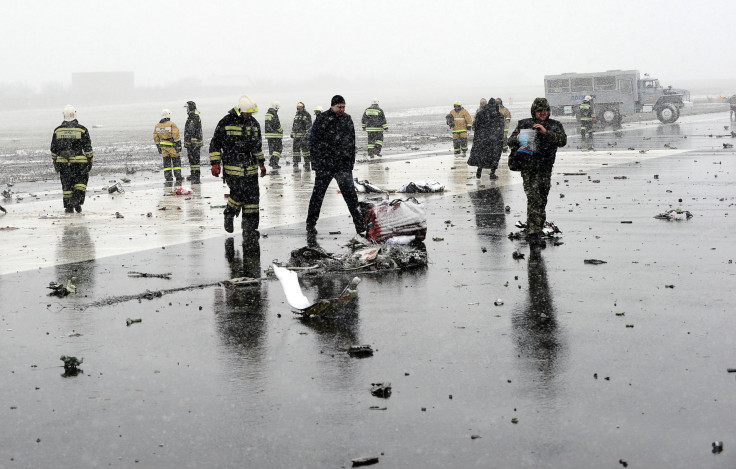Russian Transport Agency Begins Examining Low-Budget Airlines After Flydubai Flight FZ981 Crash

Russian state transport agency Rostransnadzor has begun checking Russian and overseas low-cost airlines, Reuters reported citing Tass news agency. The move comes after budget airliner Flydubai's jet crashed Saturday in the southern Russian city of Rostov-on-Don, killing all 62 people on board.
Russian investigators are probing the flight recorders from the crashed Flight FZ981. The flight recorders have been recovered, but officials from Russia’s Interstate Aviation Committee said Sunday they were badly damaged.
The officials had said that they would look into several scenarios, including pilot error, equipment malfunctions and weather conditions. The Boeing 737-800 crashed during its second attempt to land in strong wind and rain conditions.
A former captain with Flydubai told RT.com that the tragedy was expected as the plane’s pilot was “worked to death” by the airliner.
“The way that [Flydubai] … builds the schedules does not account for circadian rhythm … they do not allow pilots to get the right amount of rest, or the proper rest before a flight, and that is exactly what both of these pilots were, the situation that they were in, for sure,” the pilot reportedly said.
The RT.com report added, citing the flight log of the co-captain of Flight FZ981, that pilot Alejandro Cruz Alava worked for 11 days with only one day leave before the plane crashed.
“[Alava] was working eleven days in a row with the exception of one day off, which was Tuesday March 15,” the former pilot reportedly said. “There’s is no doubt he was fatigued and exhausted for this flight ... that definitely was a contributing factor, no matter how [Flydubai] may try to deny it,” the former pilot said.
© Copyright IBTimes 2025. All rights reserved.






















